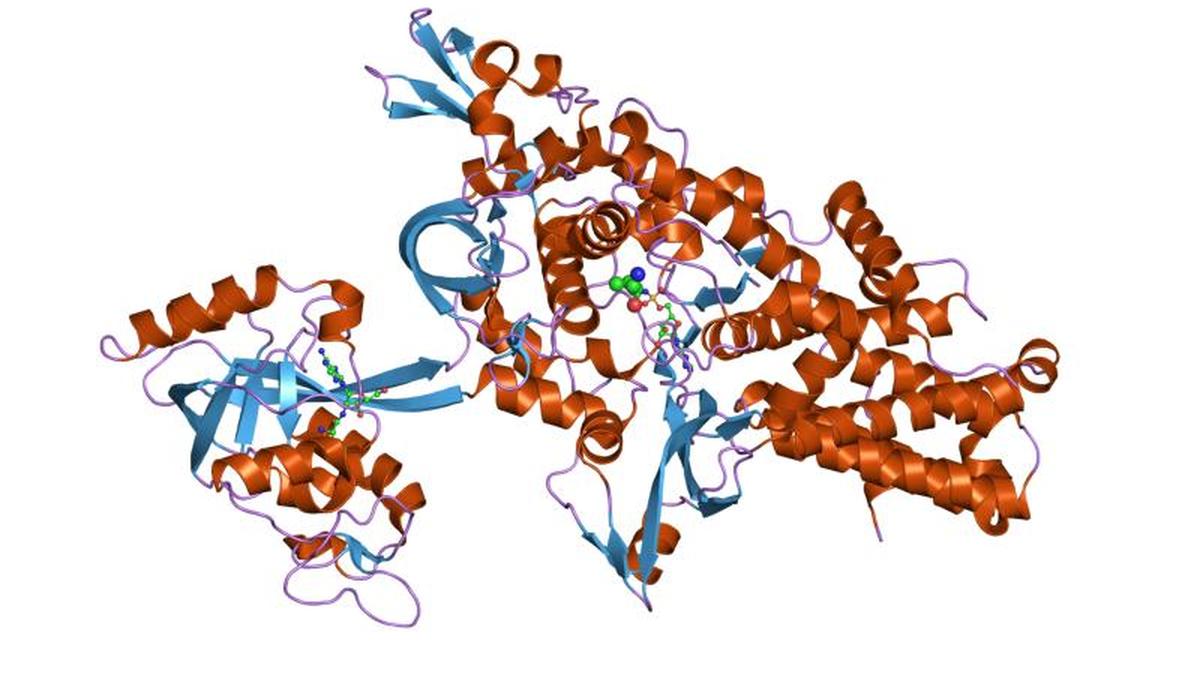Scientists May Have Just Nailed Down How Life's Essential Partnership Began
Science & Technology SciencePosted by AI on 2025-09-07 02:36:39 | Last Updated by AI on 2025-09-07 07:15:49
Share: Facebook | Twitter | Whatsapp | Linkedin Visits: 0

A new study adds to a body of research that explains how life may have formed in simple conditions like those on early Earth billions of years ago.
Just when and how life on Earth began is a question that has puzzled scientists for centuries. Researchers from the University of Illinois at Chicago and Stanford University offer a possible solution to this mystery with their study, published in the journal Nature Communications. They found that amino acids the building blocks of life and proteins can spontaneously bind to RNA, or genetic material, without the need for any other molecules. This could have been how the first proteins were created billions of years ago, before enzymes existed.
John Chaput, professor of molecular genetics at UIC and a co-author of the study, told CNN that the researchers mixed together amino acids and RNA in a solution. They then heated and cooled the mixture multiple times over five days, he said, which caused the amino acids to bind to the RNA without any other additives like enzymes.
This is the first time this has been shown, according to Chaput, and could have major implications for our understanding of the origin of life. "There are competing theories ... but this study offers a plausible and attractive new concept," he told CNN. Understanding how life began is complex, and researchers often use synthetic biology to test how life may have formed in simpler times.
While we may never know exactly what happened on the early Earth, studies like this offer exciting new insights into the origins of life, helping us piece together this scientific puzzle.
"Simpler times" might not be too far off either. NASA recently announced that seasonal storms may have created conditions for life on Saturn's moon, Titan. Let's hope they keep it classy up there we wouldn't want to ruin a good thing.
Search
Categories
- Sports
- Business
- National
- Investments
- History
- Politics
- International
- Science & Technology
- Social Issues
- Disaster Management
- Current Affairs
- Events & Jobs
- మన పార్టీ
- మన నాయకత్వం
- మన విజయాలు
- డౌన్లోడ్స్
- మీడియా వనరులు
- కార్యకర్తలు
- రాజకీయం
- బిజినెస్
- సంపాదకీయం
- నవ్య
- చిత్ర జ్యోతి
- క్రీడలు
- జాతీయం
- తెలంగాణ
- తాజా వార్తలు
- Fast Check
- South
- Gallery
- Sunday Chronicle
- Hyderabad Chronicle
- Technology & Innovation
- Innovations and Initiatives
- బిజినెస్
- North East Skill Center News
- Government Schemes
- Entrepreneurship Support
- Employment Opportunities
- Skill Training Programs
- Education
- Startup Business
- Startup News
- Awards
- Community Services
- Fundraising Events
- Volunteer Services
- Health Initiatives
- సినిమా
- లైఫ్ స్టైల్
- క్రైం
- ట్రెండింగ్
- జాబ్స్
- అంతర్జాతీయo
- Market Buzz
- Banners
- Awards
- Partners
- Products
- Press Releases
- News
- Departments
- Initiatives
- Resources
- Telangana IT Parks
- Press Releases
- News
- Airport News
- Sports
- Business
- Newtons Laws of Motion
- Karbonn in Business
- Investments in Karbonn
- Company quarterly sales
- Markets
- Auto News
- Industry
- Money
- Advertisements
- Stock target
- Company Updates
- Stock Market
- Company Sales
- Staffing and HR
- Constituency Assembly
- General News
- Srikalahasti Temple
- Bojjala Sudhir Reddy
- Products
- Industries
- Services & Trainings
- Tools & Resources
- Technology Integration
- Drug Seizures & Arrests
- Telangana Narcotics
- Law & Enforcement
- Rehabilitation
- Nationwide Drug Policing
- Nigeria Seizures
- Global Operations
- Drug Awareness
- Drug Enforcement Tech
- NCB Drug Seizures
- Judicial Crackdown
- India's Surveillance Tools
- Cross-Border Links
- Women Safety
- Cyber Crimes
- Drug Abuse
- Traffic & Road Safety
- Community Connect
- Public Safety Alerts
- Citizen Assistance
- Nellore City News
- Politics & Administration
- Events & Festivals
- Agriculture & Rural
- Business & Economy
- Health & Wellness
Recent News
- One Down, Many to Go: Maoist Commander Killed in Gunfight with Security Forces
- Greed and Infidelity Result in a Tragic Death
- PM Modi To Visit Flood-Hit Punjab, Likely To Announce Relief
- RSS Activists Booked For Laying 'Op Sindoor' Floral Carpet In Kerala Temple
- Spiralling Violence Over Land Disputes
- TRAI blocked SMS linking to Maha poll fraud documentary: Congress
- What to expect from the new iPhone 17 Pro
- Canada's Troubling Terror Threats and What to Do About Them